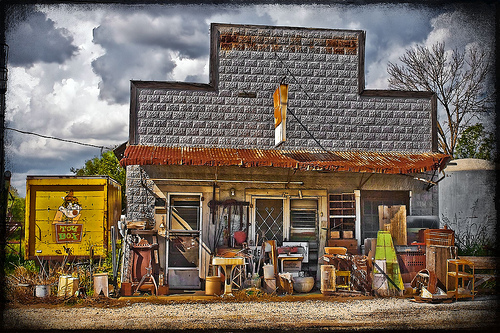As one of the possible challenge/outcomes for the Youshow is to find creative ways to share your research (and I have no idea at this point how to do this – thesis ≠ time for non-thesis related creative activity…though it does somehow allow time for fiction…see below), I thought I would start with a very short post on space.
In my research I am considering space and generally how much we don’t pay enough attention to its configuration in learning, particularly in our online context. Now that I am so immersed in the ideas around space, it is constantly emerging for me in places I did not expect.
The following section from David Mitchell’s new novel “The Bone Clocks” jumped out at me the other day, and I have been considering how much our physical and imaginative spaces are intertwined and shape one another.
“Writers don’t write in a void. We work in a physical space, a room, ideally in a house like Laxness’s Gljúfrasteinn, but we also write within an imaginative space. Amid boxes, crates, shelves, and cabinets full of … junk, treasure, both cultural—nursery rhymes, mythologies, histories, what Tolkien called ‘the compost heap’; and also personal stuff—childhood TV, homegrown cosmologies, stories we hear first from our parents, or later from our children—and, crucially, maps. Mental maps. Maps with edges. And for Auden, for so many of us, it’s the edges of the maps that fascinate …”
creative commons licensed ( BY ) flickr photo shared by futureshape
From a teaching and learning perspective we can change the first line to “Learners don’t learn in a void”…which brings up all kinds of questions. What kinds of spaces (material, social, cultural) allow for the imaginative spaces that value the compost heap, and crucially, start to push out the edges of the maps.


Totally understand about thesis vs. non-thesis creative energy! Your research topic sounds fascinating, and I hope you share more about it on this blog.
Make this a thesis activity (that’s what I am working on getting Christine to do). This sort of mini reflection is hardly a waste of time IMHO to process your thinking in a short form.
It’s pretty easy to jump to “an LMS maketh a void” but that is not 100% accurate. One can create a sense of adjacent possible in any space, but encouraging conversation and introducing a wide range of ideas/information to be mixed in?
Sounds like a design thing.
I’m a huge David Mitchell fan! Cloud Atlas was just a starter, his characters in Black Swan Green were so real I hoped the story would not end.
So Bone Clocks is another good one?
Hi Alan and Christine,
Thanks for the comments – I think this is my first blog post that is not related to teaching, so a big first step. Alan good advice to think about mini reflections and posting them. I had been thinking about how to incorporate the quote into my thesis writing and by writing the post it helped me find a bit more how it directly related.
Christine great to see that you are onto thesis writing as well – looking forward to seeing more about your research interests and reflections on your blog!
The Bone Clocks is a good read – it was great to follow a few characters throughout (as compared to Cloud Atlas). Looks like Black Swan Green needs to go on my distraction from thesis list.
Michelle,
Your post came up when I clicked the random post link. Great to meet you online again (flash back to EDDL 511 days). First, your attractive slider reminds me of one I made for my WP site from a photo looking up at the awesome Library of Congress last Nov. Sometimes, we don’t take time to look up enough and see the beauty around us (we are often so busy looking down at things).
I love the safe sharing spaces that are being created for us by Brian and Alan that are not as formal and limiting in structure as some of the spaces we are used to as academics. I look forward to reading more of your reflections as you work on your thesis.
Gail
Hi MIchelle,
I’m a new participant in the You Show, and came across your post while going through all of them in my feed reader.
I am really curious about your ideas about space in online learning environments. I’m finding that I’m spending more and more time thinking about it, especially when I compare learning experiences from my open online classes and those in my grad program. I’m interested to hear more about your research!
Jennifer